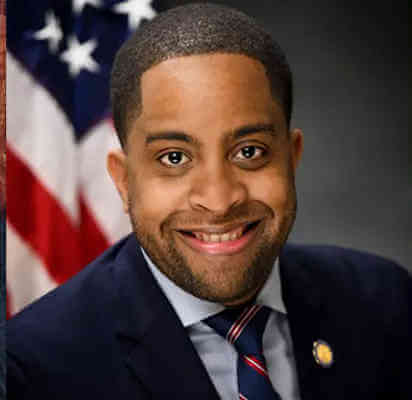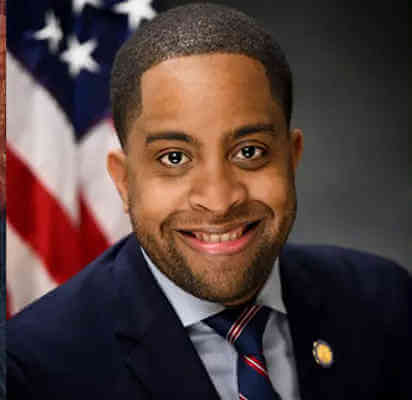As part of National Consumer Protection Week, Sen. Zellnor Y. Myrie (D-Central Brooklyn) on Wednesday introduced S.4954, the “COVID-19 Fraud Accountability Act.”
Myrie, who represents the 20th Senate District, said this legislation would sharply increase civil financial penalties for white-collar crime committed in connection with COVID-19.
“This has been a year of vulnerability for all New Yorkers. However, some bad actors have chosen to exploit this vulnerability to seek ill-gotten profit from individuals or from the government,” Myrie said.
“This legislation would dramatically increase the cost of doing business for white-collar fraudsters, scammers and others who prey on us during this already-difficult time,” he added.
According to the Federal Trade Commission, New Yorkers have filed over 20,000 fraud complaints related to COVID-19 and associated stimulus payments.
Myrie said these complaints run the gamut from healthcare enrollment scams, product and marketing fraud, phishing and cybercrime, and foreclosure “rescue” scams.
New Yorkers’ complaints to the FTC detailed over $23.7 million in losses, Myrie noted.
“COVID-19 has already wrought untold economic devastation to New Yorkers, especially upon those who had the least to begin with,” he said. “On top of everything else, no one should have to contend with additional financial losses due to fraud in this incredibly challenging moment.”
Myrie said the legislation defines “fraud in connection with an abnormal disruption of the market” in the General Business Law, and imposes a civil penalty of three times the amount of the unlawful gain (or $25,000, whichever is greater).
The senator said fraudulent activity is already prohibited in the General Business Law, adding that supplemental penalties have been adopted for crimes targeting especially vulnerable populations like the elderly.
“This bill would similarly increase penalties for white-collar crimes arising from the unique circumstances caused by the COVID-19 pandemic, as well as future emergencies and market abnormalities defined by law,” Myrie said.
“Early in the pandemic, we passed legislation to ban price gouging on essential equipment and supplies, citing the abnormal disruption to normal market operations,” he added. “This legislation extends greater protections to consumers who fall victim to white-collar criminals taking advantage of the current situation and similar future emergencies.”
Last month, a Brooklyn man was charged with conspiring to fraudulently obtain over $4 million in Paycheck Protection Program (PPP) loans, claiming that he owned multiple businesses, each with dozens of employees, Myrie said.
In fact, he said the man didn’t own any businesses or employ anyone, yet he applied for and received money intended for struggling companies.
Also last month, Myrie said the US Attorney for the Southern District announced that six men were arrested for targeting victims across the country with COVID-19 fraud and money laundering schemes.
The defendants laundered over $50 million, including fraudulent small business loans for COVID-19 relief.
In December, Myrie said two Brooklyn pharmacy owners were indicted for a $30 million money laundering and health care fraud scheme after using emergency charge codes in the Medicaid system that went into effect during the pandemic.
The pharmacists submitted fraudulent claims to Medicare for expensive medications that were never purchased, described or dispensed, Myrie said.
Last year, he said the Federal Trade Commission sent warnings to dozens of companies marketing dubious or unsubstantiated COVID remedies, including a New York company selling “botanicals and medicinal foods” that purported to “reduce [the] risk of worsening symptoms, or… ward off the virus entirely.”
The New York State Division of Consumer Protection is investigating text messages offering “pandemic stimulus relief” in exchange for providing personal financial information on official-looking, but fraudulent, websites impersonating government agencies.
“In normal times, we should not tolerate scams that target New Yorkers or their wallets. But at a moment when all of us are suffering the effects of this pandemic, we must make extra effort to deter fraud and punish it when it occurs,” Myrie said.
“By passing this important legislation, our state government will affirm that it stands firmly on the side of consumers during this time of vulnerability, and that it will take strong civil action against individuals and entities who seek to abuse their trust,” he added.

























